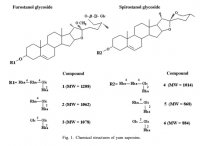Hey all,
I am seriously baffled.
How can boiled potatoes (a massive serving) result in extremely uplifting mood, but completely diminish my libido. I think I noticed this exact effect after using http://www.elixa-probiotic.com/
Other effects I notice about 2 hours after them is a reduction in body temperature.
Someone help explain the mechanism.
I have read about possible endotoxin, but I seriously feel like there's something going on.
I am seriously baffled.
How can boiled potatoes (a massive serving) result in extremely uplifting mood, but completely diminish my libido. I think I noticed this exact effect after using http://www.elixa-probiotic.com/
Other effects I notice about 2 hours after them is a reduction in body temperature.
Someone help explain the mechanism.
I have read about possible endotoxin, but I seriously feel like there's something going on.


